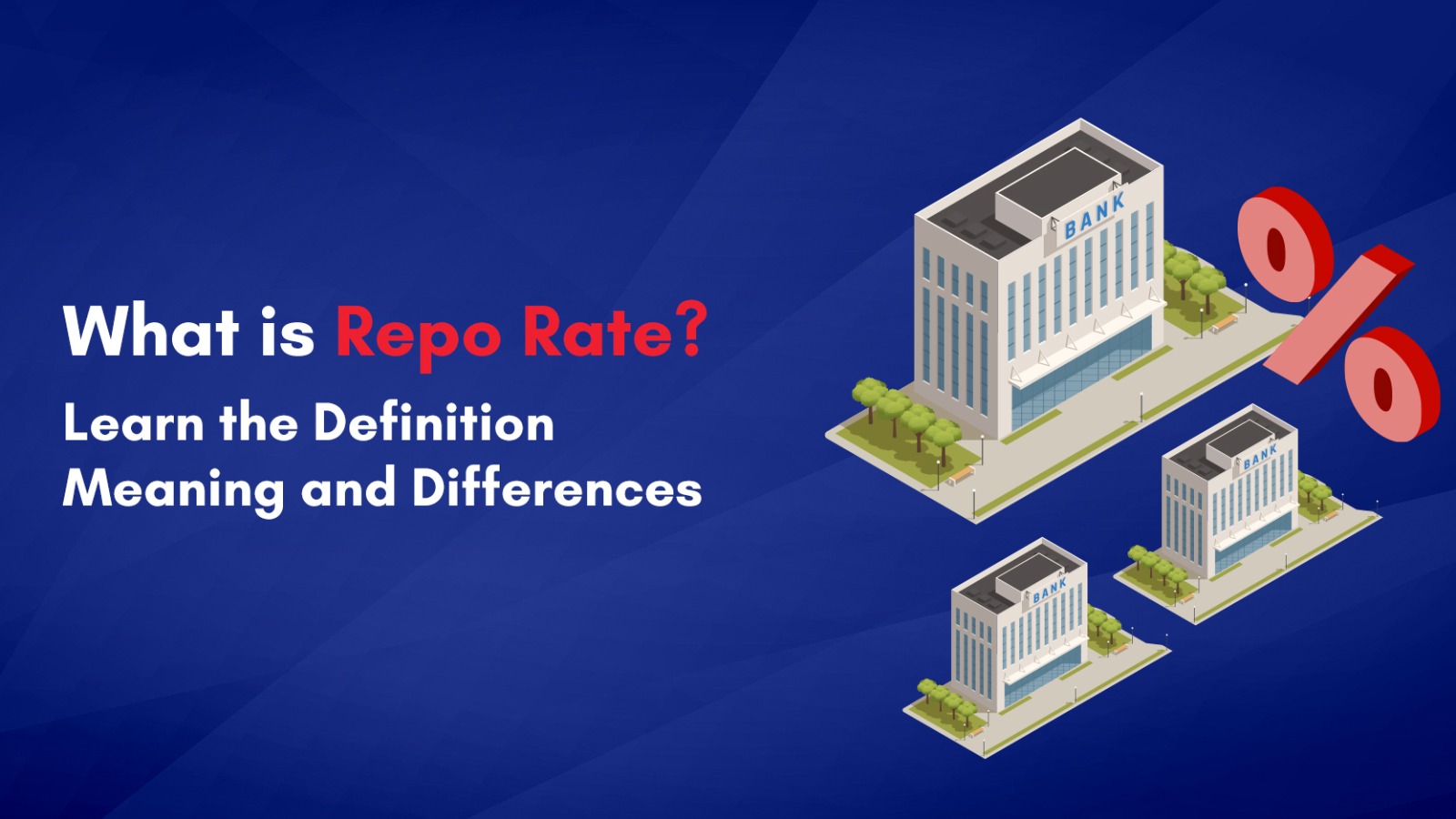Special Offers




Special Offers




01-Dec-2023 | Credit Score

Repo Rate, a crucial term in the financial landscape, refers to the interest rate at which the central bank lends money to commercial banks. Understanding the Repo Rate is essential for investors and economists alike, as it plays a pivotal role in shaping monetary policies and influencing economic stability.
Repo rate, short for repurchase rate, is the interest rate at which a central bank (such as the Reserve Bank of India) lends money to commercial banks. It is a tool used by central banks to control the money supply in the economy and influence the level of economic activity.
The Repo Rate, short for Repurchase Agreement Rate, represents the interest rate at which a central bank lends money to commercial banks in short-term transactions. This process involves the sale of government securities by commercial banks to the central bank, with an agreement to repurchase them later at a predetermined price.
The repo rate is a crucial tool in monetary policy, allowing central banks to influence the money supply in the economy. When the central bank adjusts the repo rate, it affects the cost of borrowing for commercial banks, subsequently influencing their borrowing behaviour and, consequently, the overall money supply. This tool is employed to achieve central banks' objectives, such as controlling inflation and managing economic activity.
The current repo rate stands at 6.50% as on date 30 Nov 2023 as per rate published on www.rbi.org.in. The repo rate, or Repurchase Agreement Rate, represents the interest rate at which a central bank lends funds to commercial banks for short-term periods.
The reverse repo rate is the interest rate at which a central bank borrows money from commercial banks and sells those securities with an agreement to repurchase later. It operates as the counterpart to the repo rate and plays a crucial role in the implementation of monetary policy. A higher reverse repo rate tends to incentivize commercial banks to park their excess funds with the central bank, influencing liquidity conditions in the financial system.
Current Reverse Repo Rate is 3.35% as on date 30 Nov 2023 as per www.rbi.org.in
RBI Repo Rate signifies the rate at which commercial banks can borrow money from the RBI for short-term periods. The repo rate is a key tool in the RBI's monetary policy arsenal, influencing borrowing costs, economic activity, and inflation.
A higher repo rate tends to discourage borrowing and spending, thereby helping control inflation, while a lower rate aims to stimulate economic growth. The RBI adjusts the repo rate based on its assessment of economic conditions and objectives, making it a crucial factor in shaping India's monetary policy landscape.
The current RBI repo rate is 6.5%
The RBI has kept the repo rate unchanged for the last three policy meetings.
The RBI expects inflation to remain elevated in the near term but to moderate in the medium term.
The RBI is committed to maintaining financial stability and ensuring that inflation remains within the targeted range.
Also, You can conveniently apply for a home loan through Aavas Financiers.
|
Feature |
Repo Rate |
Reverse Repo Rate |
|
Definition |
The rate at which the central bank lends money to commercial banks against government securities. |
The rate at which the central bank borrows money from commercial banks by offering them government securities. |
|
Nature |
It is an interest rate charged by the central bank. |
It is an interest rate earned by the commercial banks. |
|
Purpose |
Used by the central bank to control inflation, money supply, and liquidity in the market. |
Used by the central bank to absorb excess liquidity in the banking system. |
|
Borrower |
Commercial banks borrow from the central bank. |
Commercial banks lend to the central bank. |
|
Security |
Commercial banks provide government securities as collateral. |
The central bank provides government securities as collateral. |
|
Duration |
Generally short-term (usually overnight). Typically short-term (usually overnight) as well. |
Typically short-term (usually overnight) as well. |
In conclusion, the repo rate plays a crucial role in shaping the monetary policy of a country and influencing its economic landscape. As a key tool for central banks to control inflation and ensure financial stability, the repo rate impacts borrowing costs, liquidity conditions, and overall economic activity.